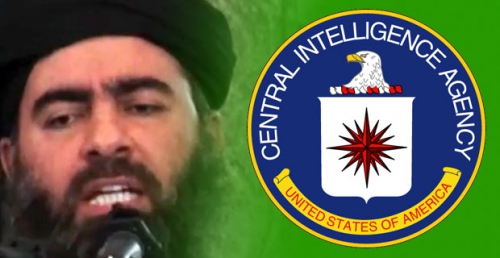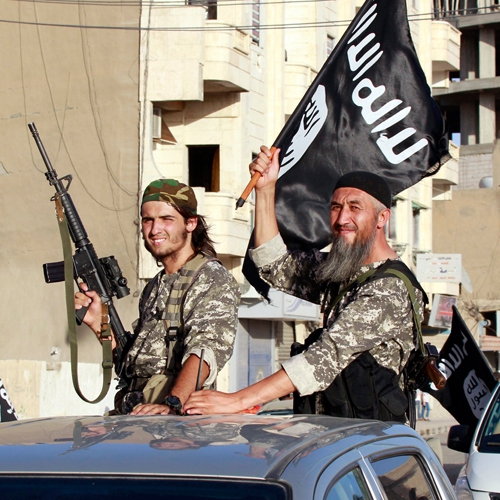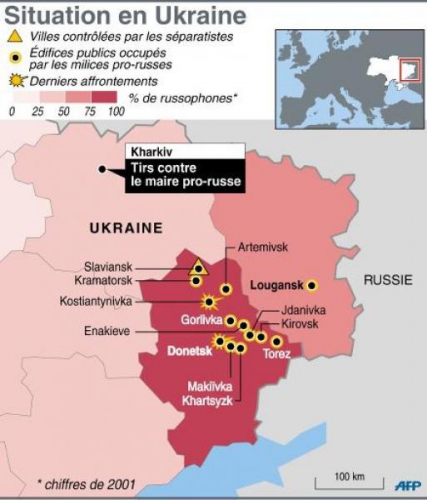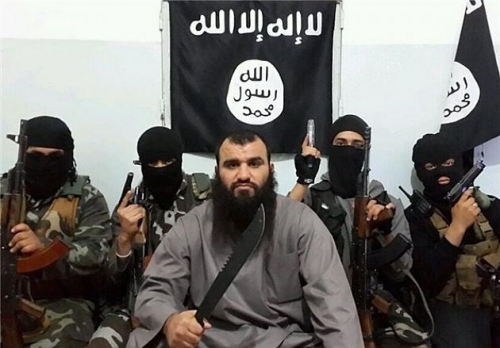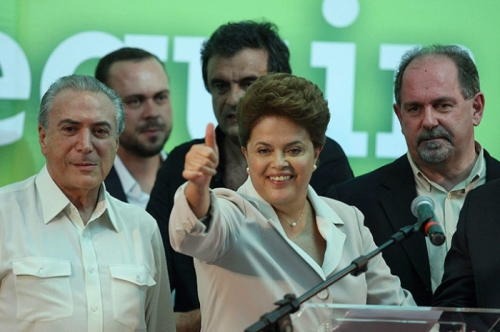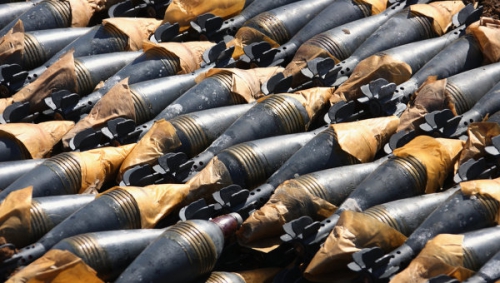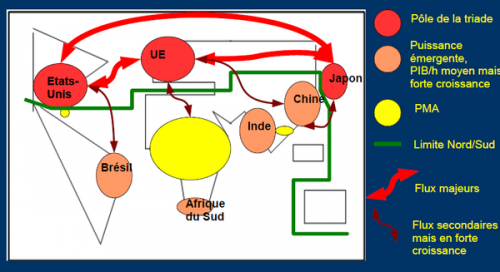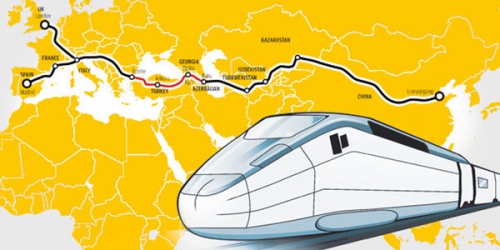
El futuro de una alianza Beijing-Moscú-Berlín
¿Pueden China y Rusia echar a Washington a empujones de Eurasia?
por Pepe Escobar
Ex: http://paginatransversal.wordpress.com
Introducción de Tomdispatch:
Nuevas rutas de la seda y un siglo euroasiatico alternativo
Durante la II Guerra de Iraq (2003-2011), solía yo imaginar que los líderes chinos se reunían semanalmente en las calles de la Ciudad Prohibida, cantando y bailando para celebrar la estupidez americana. Año tras año, cuando Estados Unidos hubiera podido enfrentarse a una China en ascenso, como les pedía el cuerpo a los líderes yanquis desde hacía años, el país se encontraba completamente distraído por la desastrosa invasión y ocupación de Iraq. No puedo dejar de pensar que, en unos momentos en que una campaña acelerada de bombardeos en Iraq y ahora Siria, con las botas de 1.600 militares cada vez más sobre el terreno y otras que parece que están por llegar, con una III Guerra de Iraq (2014 – fecha límite desconocida) los líderes chinos se están regocijando una vez más. A pesar de todo lo que se ha hablado en los últimos años acerca de “pivote asiático” militar del gobierno de Obama, no puede caber duda de que esta reciente campaña en Oriente Próximo va a poner piedras en el planeado engranaje de “contención” en el Pacífico.
Mientras tanto, el estado de ánimo de China ha cambiado, claramente. Como escribió Orville Schell recientemente después de una polémica visita a Beijing del viejo presidente Jimmy Carter (90 años), quien hace más de 30 años patrocinó un acercamiento a gran escala de Estados Unidos con la nueva versión capitalista de la China comunista :
“En pocas palabras, lo que solía ser conocido como ‘Occidente’ ahora se encuentra enfrentado a una posición cada vez más intrincada en la que el equilibrio de poder está cambiando, un hecho que pocos se han tomado la molestia de reconocer y mucho menos de tener en cuenta en las nuevas formulaciones de acercamiento a China. Seguimos teniendo nostalgia de aquellos tiempos pintorescos en que los líderes chinos seguían la consigna de Deng [Xiaoping] a su pueblo: “Esconder nuestras capacidades y esperar nuestro momento” (taoguang yanghui). Lo que quería decir con esta expresión (chengyu) no era que China tuviera que seguir eternamente contenida sino que el momento de manifestarse aún no había llegado. Ahora que es más fuerte, en cambio, sus líderes parecen creer que su momento ha llegado por fin y que ya no están ni siquiera dispuestos a ajustarse a la reconfortante idea de un “ascenso pacífico” (heping jueqi)”.
Por el momento, por supuesto, los chinos tienen sus propios problemas internos, que van desde una economía con tendencia a la creación de burbujas, a un movimiento separatista islámico en el interior de la provincia de Xinjiang y al reciente movimiento Occupy que está levantando olas en el moderno centro financiero asiático de Hong Kong. Sin embargo, si uno llega a Beijing el mundo parece un lugar diferente. Pepe Escobar, trotamundos peripatético de TomDispatch en el continente euroasiático, que él llama Pipelineistan, ha hecho justamente eso. Ha visitado también lugares situados a lo largo de las futuras “nuevas rutas de la seda” que China quiere establecer siguiendo el camino a Europa occidental. Escobar ofrece una visión de un mundo euroasiático diferente a la que reflejan los boletines de noticias de este país. Si usted desea entender el planeta en el que en realidad puede encontrarse viviendo en un futuro próximo, no podría ser más significativo asimilar dicha visión.
*** *** ***

¿Pueden China y Rusia echar a Washington a empujones de Eurasia?
El futuro de una alianza Beijing-Moscú-Berlín
Un fantasma recorre el rápidamente envejecido “Nuevo Siglo Americano”: la posibilidad de una futura alianza comercial estratégica Beijing-Moscú-Berlín. Llamémosla BMB.
Su probabilidad está siendo analizada muy en serio en las más altas esferas de Beijing y Moscú, y observada con interés en Berlín, Nueva Delhi y Teherán. Pero no se les ocurra mencionarla dentro del circuito político –el Beltway– de Washington o en la sede de la OTAN en Bruselas. En estos lugares, la estrella del espectáculo de hoy y mañana es el nuevo Osama bin Laden: el Califa Ibrahim, alias Abu Bakr al-Baghdadi, el escurridizo y autoproclamado profeta y decapitador, jefe de un mini estado y un movimiento que ya nos ha deparado un festín de siglas –ISIS/ISIL/IS– a mayor gloria de la histeria reinante en Washington y otros lugares.
Sin embargo, al margen de cómo Washington nos depara con asiduidad nuevos remix de la Guerra Global contra el Terror, las placas tectónicas de la geopolítica euroasiática continúan en movimiento, y no van a dejar de hacerlo porque las elites estadounidenses se nieguen a aceptar que su históricamente breve “momento unipolar” está de capa caída. A ellos, el cierre de la era del “full spectrum dominance” (dominio de espectro completo), como el Pentágono le gusta llamarlo, les resulta inconcebible. Después de todo, la necesidad de que el país “indispensable” controle todo el espacio –militar, económico, cultural, cibernético y exterior– es poco menos que un dogma religioso. A los misioneros “excepcionalistas” no les va la igualdad. A lo sumo, aceptan “coaliciones de voluntarios” como la que amontona a “más de 40 países” para luchar contra ISIS/ISIL/IS, países que o bien aplauden (y maquinan) entre bambalinas o envían algún que otro avión a Iraq o Siria.
La OTAN, que a diferencia de parte de sus miembros no combatirá oficialmente en Jihadistan, sigue siendo un montaje vertical controlado desde la cúspide por Washington. Nunca se ha molestado en aceptar plenamente a la Unión Europea o permitir que Rusia se “sintiera” europea. En cuanto al Califa, se trata únicamente de una distracción menor. Un cínico postmoderno podría incluso afirmar que se trata de un emisario enviado al terreno de juego mundial por China y Rusia para que la hiperpotencia perdiera de vista la pelota.
Divide y aísla
Así pues, ¿cómo se aplica la “dominación de espectro completo” cuando dos potencias competidoras reales –Rusia y China– comienzan a hacer sentir su presencia? El enfoque de Washington hacia cada una de ellas –en Ucrania y en los mares de Asia– podría considerarse como de dividir y aislar.
Con el fin de mantener el Océano Pacífico como un clásico “lago americano”, el gobierno de Obama ha estado “pivotando” de vuelta a Asia desde hace varios años. Esto ha implicado sólo movimientos militares modestos, sino también un poco modesto intento de enfrentar el nacionalismo chino contra la variante homóloga japonesa, mientras reforzaba sus alianzas y relaciones en todo el Sudeste asiático, con un enfoque en las disputas energéticas del Mar del Sur de China. Al tiempo que movía sus peones para cerrar un acuerdo comercial futuro, la Asociación Trans-Pacífico (TPP).
En las fronteras occidentales de Rusia, el gobierno de Obama (coreado por sus cheerleaders locales, Polonia y los países bálticos) ha avivado las brasas de un cambio de régimen en Kiev hasta hacerlas llamear y crear lo que Vladimir Putin y los líderes de Rusia perciben como una amenaza existencial para Moscú. A diferencia de EE.UU., cuya esfera de influencia (y sus bases militares) son globales, se trataba de que Rusia no tuviera ninguna influencia significativa en lo que fue su bloque cercano, el cual, en lo que respecta a Kiev, no es para la mayoría de los rusos en absoluto “extranjero”.
Para Moscú, pareciera que Washington y sus aliados de la OTAN estuvieran cada vez más interesados en imponer un nuevo telón de acero a su país desde el Báltico hasta el Mar Negro, con Ucrania simplemente como punta de lanza. En términos de la alianza BMB, el nuevo telón se concibe como un intento de aislar a Rusia e imponer una nueva barrera a sus relaciones con Alemania. El objetivo final sería dividir Eurasia e impedir nuevos avances hacia una integración comercial futura a través de un proceso no controlado por Washington.
Desde el punto de vista de Beijing, la crisis de Ucrania ha sido un acontecimiento en el que Washington ha cruzado todas las líneas rojas imaginables para acosar y aislar a Rusia. Para sus líderes, pareciera un intento concertado de desestabilizar la región de manera favorable a los intereses estadounidenses, con el apoyo de toda la amplia gama de élites de Washington, desde los neoconservadores y “liberales” de la Guerra Fría hasta los intervencionistas humanitarios del tipo Susan Rice y Samantha Power. Por supuesto, si usted ha estado siguiendo la crisis de Ucrania desde Washington, esta perspectiva le parecerá tan extraña como la de un marciano cualquiera. Pero el mundo se ve de manera diferente desde el corazón de Eurasia, en particular a partir de una China en ascenso con su “sueño chino” (Zhongguo meng) de nuevo cuño.
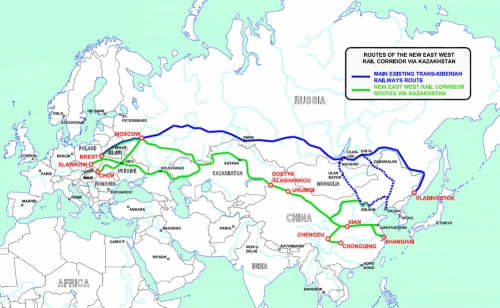
Según el presidente Xi Jinping, ese sueño incluiría una futura red de nuevas rutas de la seda, organizada por China, que crearía el equivalente de un Trans-Asian Express para el comercio euroasiático. Así que cuando Beijing, por ejemplo, siente la presión de Washington y Tokio en el frente marítimo, parte de su respuesta es un avance de tipo comercial en dos frentes a través de la masa terrestre de Eurasia, uno de ellos a través de Siberia y el otro a través de los “stans” de Asia Central.
En este sentido, aun que usted no lo sepa –si sólo sigue los medios estadounidenses o los “debates” en Washington– estamos entrando potencialmente en un nuevo mundo. No hace mucho tiempo, los líderes de Beijing coqueteaban con la idea de redefinir su juego geopolítico-económico codo con codo con EE.UU., mientras que el Moscú de Putin daba a entender la posibilidad de algún día unirse a la OTAN. Ya se acabó. Hoy en día, la parte de Occidente en que ambos están interesados en un posible futuro es una Alemania ya no dominada por el poderío estadounidense y los deseos de Washington.
De hecho, Moscú lleva ya no menos de medio siglo de diálogo estratégico con Berlín que hoy día incluye la cooperación industrial y la interdependencia energética. En muchas partes del Sur global ya se está al corriente de ello, y Alemania está empezando a ser considerada como “la sexta potencia BRICS” (después de Brasil, Rusia, India, China y Sudáfrica).
En medio de unas crisis mundiales que van desde Siria a Ucrania, los intereses geoestratégicos de Berlín parecen ir divergiendo lentamente de los de Washington. Los industriales alemanes, en particular, parecen ansiosos por continuar con unos tratos comerciales con Rusia y China que no tienen límite. Estos podrían colocar al país en camino hacia un poderío mundial sin los límites de las fronteras de la UE y, a largo plazo, indicar el final de la era en la que Alemania, por mucha sutileza que se quisiera, era esencialmente un satélite estadounidense.
Será un camino largo y sinuoso. El Bundestag, el parlamento de Alemania, sigue dependiente de una agenda atlantista fuerte y de una obediencia preventiva a Washington. Y siguen habiendo decenas de miles de soldados estadounidenses en suelo alemán . Sin embargo, por primera vez, la canciller alemana Angela Merkel ha dudado a la hora de imponer sanciones más estrictas a Rusia, por cuanto no menos de 300.000 puestos de trabajo alemanes dependen de las relaciones con este país. Los líderes industriales y el establishment financiero ya han dado la voz de alarma, temiendo que dichas sanciones sean totalmente contraproducentes.
El banquete de la Ruta de la Seda china
El nuevo juego de poder geopolítico de China en Eurasia tiene pocos paralelos en la historia moderna. Los días en que el “pequeño timonel” Deng Xiaoping insistía en que el país debía mantener un perfil bajo en la escena mundial han desaparecido. Por supuesto, hay desacuerdos y estrategias en conflicto cuando se trata de la gestión de los puntos calientes del país: Taiwán, Hong Kong, Tíbet, Xinjiang, el Mar del Sur de China, los competidores India y Japón, y los aliados problemáticos como Corea del Norte y Pakistán. Y el descontento popular en algunas “periferias” dominadas por Beijing está creciendo hasta niveles incendiarios.
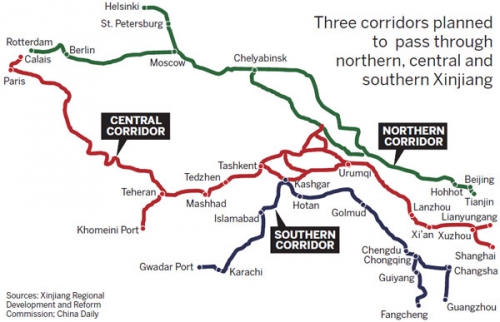
La prioridad número uno del país sigue siendo llevar a cabo las reformas económicas del presidente Xi, al tiempo que se aumenta la “transparencia” y se lucha contra la corrupción en el seno del Partido Comunista gobernante. En un distante segundo lugar está el problema de cómo protegerse progresivamente contra los planes de “pivote” del Pentágono en la región –mediante el aumento del poderío militar de una flota de alta mar, submarinos nucleares y una fuerza aérea tecnológicamente avanzada– sin llegar a ser tan asertivo como para hacer entrar en pánico al establishment de Washington y su temida “amenaza amarilla”.
Mientras tanto, con una Marina estadounidense capaz de controlar las vías de comunicación globales marítimas en un futuro previsible, la planificación de las citadas rutas de la seda a través de Eurasia prosigue a buen ritmo. El resultado final podría ser un triunfo de las infraestructura integradas –carreteras, trenes de alta velocidad, oleoductos, puertos– que conectaría China a Europa Occidental y el Mediterráneo, el viejo Mare Nostrum imperial, en todas las formas imaginables.
En un viaje inverso al de Marco Polo, remixed para un mundo con Google, uno de los ramales claves de la Ruta de la Seda irá desde la antigua capital imperial Xi’an a Urumqi, en la provincia de Xinjiang, y luego, a través de Asia central, Irán, Iraq y la Anatolia turca, hasta terminar en Venecia. Otro será una ruta marítima de la seda a partir de la provincia de Fujian, pasando por el estrecho de Malaca, el Océano Índico, Nairobi, en Kenia, para finalmente continuar hasta el Mediterráneo a través del Canal de Suez. Tomados en conjunto, es a lo que Beijing se refiere como el Cinturón Económico de la Ruta de la Seda.
La estrategia de China es crear una red de interconexiones entre no menos de cinco zonas clave: Rusia (puente clave entre Asia y Europa), los “stans” de Asia Central, Asia del sureste (con importantes funciones para Irán, Iraq, Siria, Arabia Saudita y Turquía), el Cáucaso y Europa del Este (entre otros Belarús, Moldavia y, en función de su estabilidad, Ucrania). Y no se olviden de Afganistán, Pakistán y la India, en lo que podría ser considerado como una ruta de la seda plus.
Esta ruta plus conectaría el corredor económico Bangladesh-China-India-Myanmar con el corredor económico China-Pakistán, y podría ofrecer a Beijing un acceso privilegiado al Océano Índico. Una vez más, un paquete total –carreteras, trenes de alta velocidad, oleoductos y redes de fibra óptica– uniría la región con China.
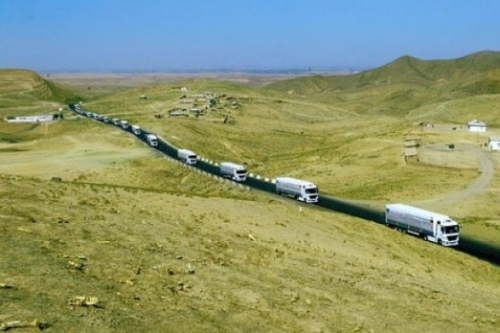
Xi en persona situó la conexión entre India y China como parte de un bien definido conjunto de imágenes en un artículo de fondo que publicó en el periódico The Hindu poco antes de su reciente visita a Nueva Delhi. “La combinación de la ‘fábrica del mundo’ y la ‘oficina administrativa del mundo’”, escribió, “dará como resultado la base productiva más competitiva y el mercado de consumo más atractivo”.
El núcleo central de la elaborada planificación china para el futuro euroasiático es Urumqi, capital de la provincia de Xinjiang y sede de la mayor feria comercial de Asia Central, la Feria de China-Eurasia. Desde el año 2000, una de las mayores prioridades de Beijing ha sido la urbanización de esta provincia, en gran parte desierta pero rica en petróleo, e industrializarla a toda costa. Lo que implica, en opinión de Beijing, la homologación de la región con China, con el corolario de la supresión de cualquier disidencia de la etnia uigur. Li Yazhou, general del Ejército Popular de Liberación describió Asia Central como “el más sutil pedazo de pastel donado por el cielo a la China moderna”.
La mayor parte de la visión de China de una nueva Eurasia conectada con Beijing por todo tipo de transporte y comunicación se detallaba claramente en el documento “Marching Westwards: The Rebalancing of China’s Geostrategy” (“Marchando hacia el oeste: el reequilibrio de la geoestrategia china”) un estudio de referencia publicado en 2012 por el académico Wang Jisi, del Centro de Estudios Internacionales y Estratégicos de la Universidad de Beijing. Como respuesta a este futuro entramado de conexiones de eurasiáticas, el mayor logro del gobierno de Obama ha sido a una versión de la contención naval desde el Océano Índico hasta el Mar del Sur de China, al tiempo que un agudizamiento de los conflictos y las alianzas estratégicas alrededor de China, de Japón a la India. (La OTAN se queda, por supuesto, con la tarea de contener a Rusia en Europa del Este).
Contra las rutas de la seda, telón de acero
El “acuerdo de gas del siglo”, de 400.000 millones dólares, firmado por Putin y el presidente chino en mayo pasado, sentó las bases para la construcción del gasoducto Power of Siberia ya en construcción en Yakutsk, que hará llegar un diluvio de gas natural ruso al mercado chino. Está claro que sólo representa el comienzo de una alianza energética turboasistida entre los dos países. Entre tanto, los empresarios e industriales alemanes ya se han percatado de una nueva realidad: del mismo modo que el mercado final de los productos made-in-China que circularán por las futuras nuevas rutas de la seda será Europa, una circulación en sentido inverso es asimismo evidente. En un posible futuro comercial, China está destinada a convertirse en el principal socio comercial de Alemania para 2018, por delante tanto de EE.UU. como de Francia.

Un posible obstáculo a esta evolución, grato a los ojos de Washington, es una Guerra Fría 2.0, que ya está desgarrando no la OTAN sino la Unión Europea. En la UE de este momento, el campo antirruso incluye Gran Bretaña, Suecia, Polonia, Rumanía y los países bálticos. Por otra parte, Italia y Hungría, pueden considerarse en el campo prorruso, mientras que una imprevisible Alemania sigue siendo la clave para saber si el futuro va a consistir en un nuevo telón de acero o en una nueva apertura al Este. Para ello, Ucrania sigue siendo la clave. Si se la consigue finlandizar con éxito (con una autonomía significativa para sus regiones), como ha propuesto Moscú –sugerencia que Washington rechaza de plano–, la vía hacia el Este seguirá abierta. Si no, la propuesta de una BMB tendrá un futuro incierto.
Cabe señalar que hay también otra visión del futuro económico euroasiático que asoma en el horizonte. Washington intenta imponer a Europa un Tratado Transatlántico de Comercio e Inversión (TTIP) y un tratado Transpacífico de Asociación similar (TPP) a Asia. Ambos favorecen a las corporaciones americanas globales y su objetivo evidente es el de impedir el ascenso de las economías de los países BRICS y el surgimiento de otros mercados emergentes, a la vez que da solidez a la hegemonía económica global estadounidense.
Dos hechos flagrantes, debidamente registrados en Moscú, Beijing y Berlín, indican cuál es el núcleo duro geopolítico detrás de estos dos pactos “comerciales”. El TPP excluye a China y el TTIP excluye a Rusia. Es decir, ambos representan las líneas de fuerza, apenas disimuladas, de una futura guerra comercial y monetaria. En mis propios viajes recientes, he oído una y otra vez de boca de productores agrícolas de calidad en España, Italia, y Francia que el TTIP es nada más que una versión económica de la OTAN, la alianza militar que el presidente chino Xi Jinping, llama, quizás un tanto ilusoriamente, una “estructura obsoleta”.
Hay una resistencia significativa al TTIP en muchos países de la UE (especialmente en los del Club Med de la Europa meridional), del mismo modo que la hay contra el TPP entre las naciones de Asia (especialmente Japón y Malasia). Es esto es lo que da a chinos y rusos esperanzas para sus nuevas rutas de la seda y para un nuevo tipo de comercio a través del corazón de Eurasia respaldado por una Unión Euroasiática apoyada en Rusia. A esta situación están prestando mucha atención figuras clave en los círculos empresariales e industriales alemanes para los que la relación con Rusia sigue siendo esencial.
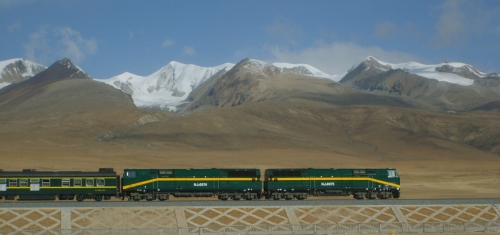
Después de todo, Berlín no ha mostrado una excesiva preocupación por el resto de una UE sumida en crisis (tres recesiones en cinco años). A través de una troika universalmente despreciada –Banco Central Europeo, Fondo Monetario Internacional y Comisión Europea– Berlín está ya a todos los efectos prácticos, al timón de Europa, prosperando y mirando al Este.
Hace tres meses, la canciller alemana Angela Merkel visitó Beijing. Apenas aparecieron en la prensa las conversaciones sobre la aceleración de un proyecto potencialmente revolucionario: una conexión ininterrumpida de ferrocarril de alta velocidad entre Beijing y Berlín. Su construcción será un imán para el transporte y el comercio entre decenas de países a lo largo de su ruta, de Asia a Europa. Pasando a través de Moscú, podría convertirse en el integrador definitivo de la Ruta de la Seda y quizás la pesadilla definitiva para Washington.
“Perder” Rusia
En medio de una gran atención de los medios, la reciente cumbre de la OTAN en Gales ha producido sólo una modesta “fuerza de reacción rápida” para su despliegue con vistas a cualquier situación futura tipo Ucrania. Mientras tanto, la creciente Organización de Cooperación de Shanghái (OCS), una posible contraparte asiática de la OTAN, se reunió en Duchanbé (Tayikistán). En Washington y Europa Occidental nadie pareció dar importancia al encuentro. Deberían haberlo hecho. Allí, China, Rusia y los cuatro “stans” de Asia Central acordaron incorporar a un impresionante conjunto de nuevos miembros: India, Pakistán e Irán. Las implicaciones pueden ser de largo alcance. Después de todo, India, con su primer ministro Narendra Modi, está ahora contemplando su propia interpretación de la Ruta de la Seda. Detrás de ella se encuentra la posibilidad de un acercamiento económico de “Chindia”, que podría cambiar el mapa geopolítico de Eurasia. Al mismo tiempo, Irán está también incorporándose al tejido de la red “Chindia”.
De este modo, lenta pero segura, la OCS se perfila como la principal organización internacional en Asia. Ya es evidente que uno de sus objetivos fundamental a largo plazo será el de dejar de operar en dólares, mientras avanza en el uso del petroyuan y el petrorrublo en el comercio de la energía. Y EE.UU., por supuesto, nunca será bien recibido en la Organización.
Pero todo esto es hablar del futuro. En la actualidad, el Kremlin sigue enviando señales de que quiere empezar a hablar de nuevo con Washington, mientras que Beijing nunca ha querido dejar de hacerlo. Sin embargo, la administración Obama sigue miope, enfrascada en su propia versión de un juego de suma cero, confiando en su fuerza tecnológica y militar para mantener una posición ventajosa en Eurasia. Beijing, sin embargo, tiene acceso a los mercados y un montón de dinero en efectivo, mientras que Moscú tiene un montón de energía. Una cooperación triangular entre Washington, Beijing y Moscú sería sin duda –como dirían los chinos– un juego en el que todos saldrían ganando… pero no contengan la respiración por el momento.
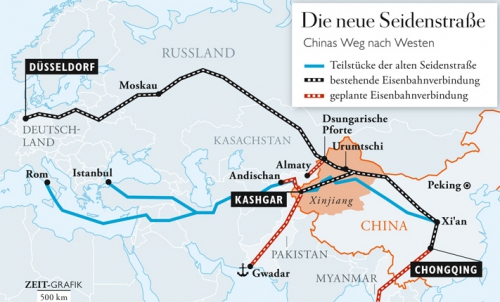
En cambio, es de esperar que China y Rusia profundicen su asociación estratégica, al tiempo que atraen a otras potencias regionales euroasiáticas. Beijing ha apostado el resto a que el enfrentamiento entre EEUU/OTAN y Rusia por Ucrania hará que Vladimir Putin gire hacia el Este. Al mismo tiempo, Moscú está calibrando cuidadosamente lo que su presente reorientación hacia un gigante económico así puede significar. Algún día, es posible que algunas voces de cordura en Washington se pregunten en voz alta cómo fue que EE.UU. “perdió” Rusia en beneficio de China.
Mientras tanto, podemos pensar en China como un imán en el nuevo orden mundial de un futuro siglo euroasiático. El mismo proceso de integración que realiza Rusia, por ejemplo, parece cada vez más el de India y otras naciones de Eurasia, y, posiblemente, tarde o temprano también el de una Alemania neutral. En el juego final de un proceso así, EE.UU. podría verse progresivamente expulsado de Eurasia, y el eje BMB podría aparecer como un factor de cambio de juego. Hagan sus apuestas, pronto. El resultado para el año 2025.
*Pepe Escobar es el corresponsal itinerante de Asia Times/Hong Kong, analista de RT y colaborador habitual de TomDispatch. Su nuevo libro, Empire of Chaos, se publicará en noviembre por Nimble Books. Sigalo en Facebook.
(Traducido para Rebelión por S. Seguí)
Fuente: http://www.tomdispatch.com/blog/175903/
Extraído de: Rebelión






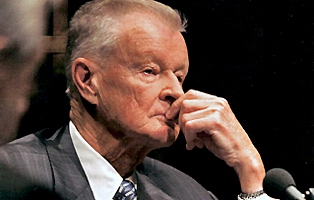

 del.icio.us
del.icio.us
 Digg
Digg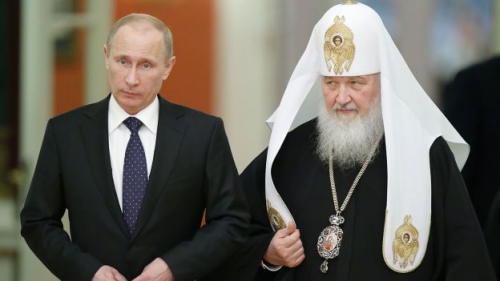
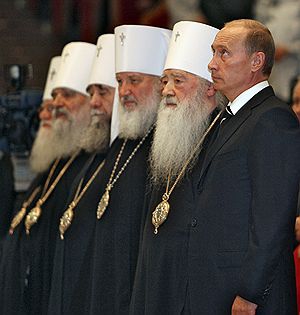 Pour appuyer notre démonstration et lui donner une base d’actualité suffisamment riche, nous citons un texte de l’écrivain(e) danoise Iben Thranholm, publié par l’excellent site Russia Insider, le
Pour appuyer notre démonstration et lui donner une base d’actualité suffisamment riche, nous citons un texte de l’écrivain(e) danoise Iben Thranholm, publié par l’excellent site Russia Insider, le 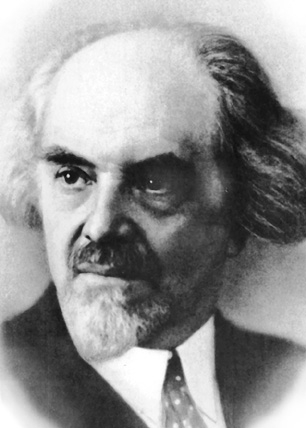 »For their part Solovyov and Berdyaev argued that the historic mission of Russia is to lead the way to human unification. Russia would transcend secularism and atheism and create a unified spiritual kingdom. “The Russian messianic conception,” said Berdyaev, “always exalted Russia as a country that would help to solve the problems of humanity.”
»For their part Solovyov and Berdyaev argued that the historic mission of Russia is to lead the way to human unification. Russia would transcend secularism and atheism and create a unified spiritual kingdom. “The Russian messianic conception,” said Berdyaev, “always exalted Russia as a country that would help to solve the problems of humanity.”
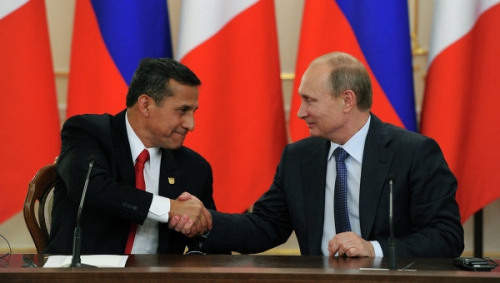
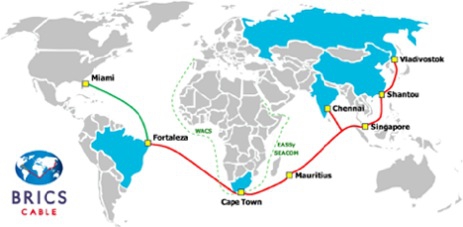
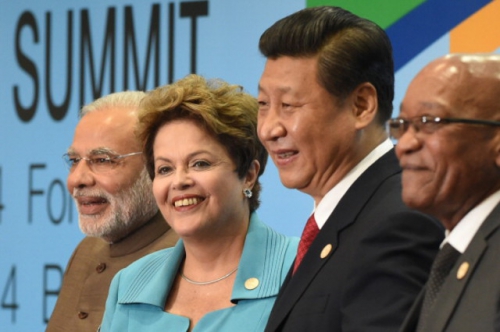
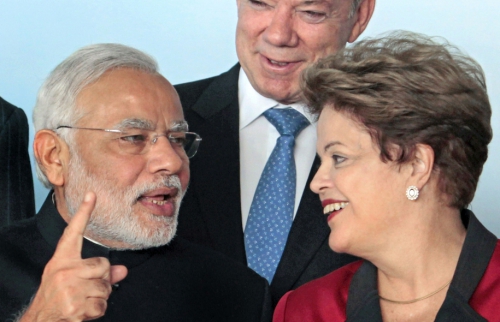

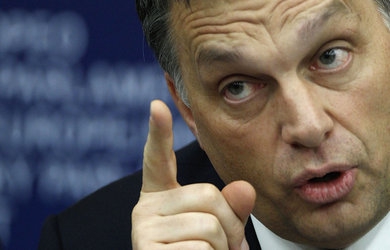
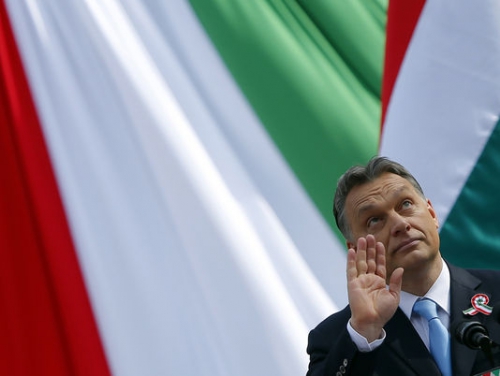
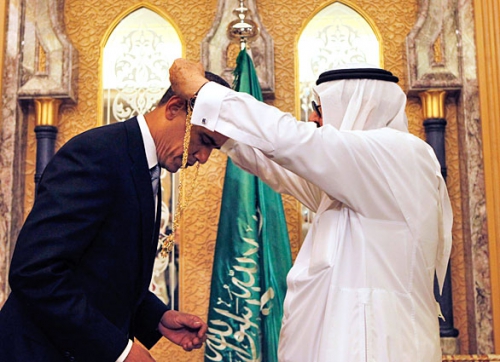
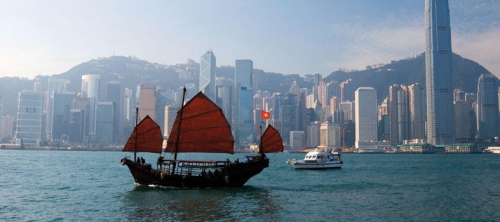
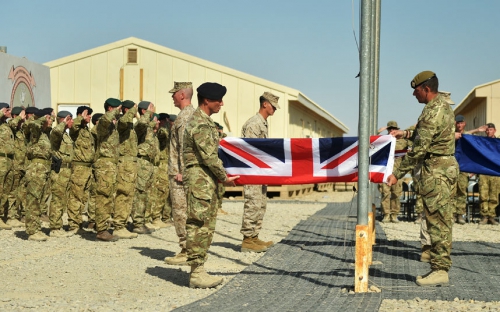
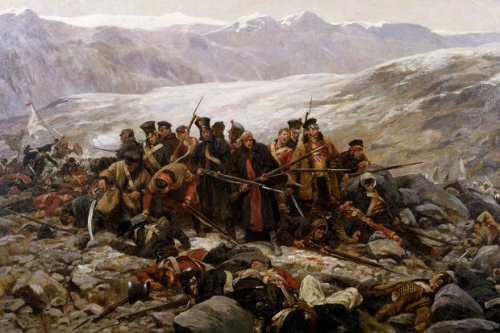

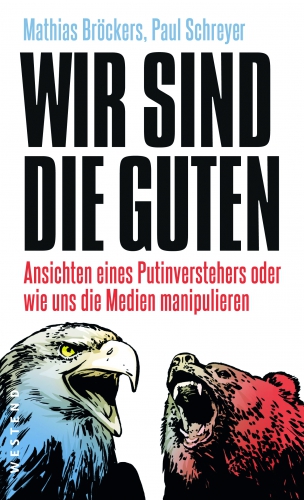 Deutsche Wirtschafts Nachrichten:
Deutsche Wirtschafts Nachrichten: 









